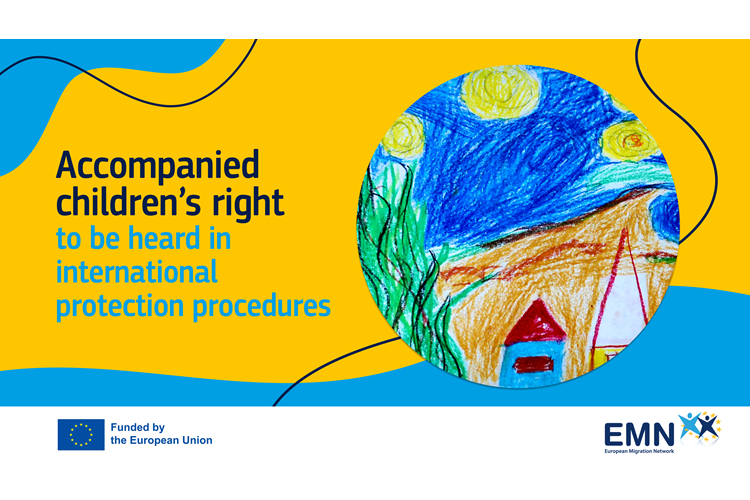This inform provides an overview of how the right of accompanied children to be heard is being implemented in EMN Member Countries and Norway, including good practices, challenges, and lessons learned
Children who migrate with their parents face unique challenges and vulnerabilities. That's why it's crucial that their right to express their views is fully implemented in international protection procedures.
Processing international protection applications for accompanied children can be particularly challenging, as there may be conflicting interests at play. In some cases, children may be reluctant to share certain information in front of their parents or responsible adults, or vice versa, parents may not want certain information to be disclosed by the child. This can be especially difficult in situations involving child abuse.
It is therefore crucial that we gain a better understanding of when and how accompanied children are heard in international protection procedures, as well as the regulations surrounding these procedures.
EMN Member Countries and Norway have implemented diverse strategies to determine the appropriate timing and necessity of conducting personal interviews with accompanied children.
In most countries, personal interviews are carried out by specialist staff trained to communicate with children in a language adapted to their age and maturity. Some countries also use non-verbal methods such as playing, drawing, and storytelling during the interview process.
The inform also highlights some challenges that EMN Member Countries and Norway are facing in guaranteeing the right of accompanied children to express their views.
You can downolad it
here.
Page


